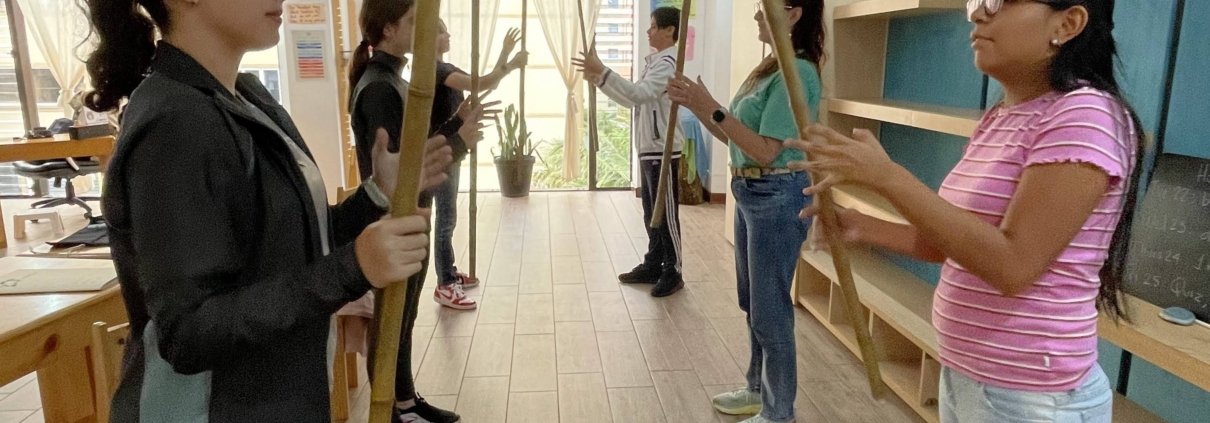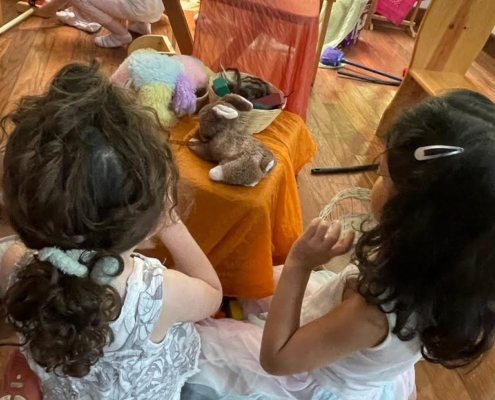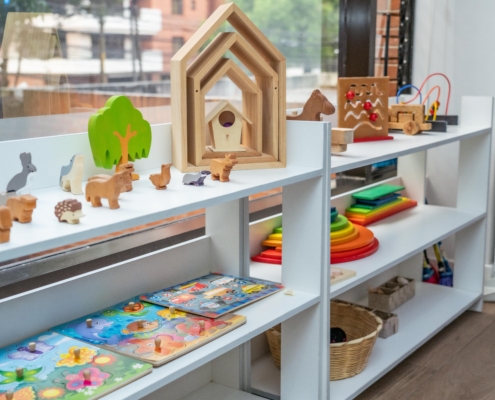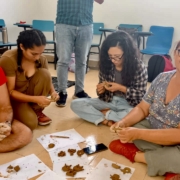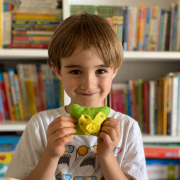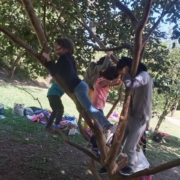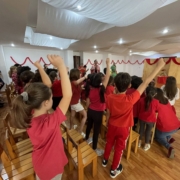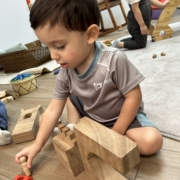Dyslexia can be overcome with nursery rhymes and music
In Trinus, our children learn the multiplication tables by moving and clapping, by stepping in a rhythmical way. We integrate music in all the subjects, it is not treated as a separate subject. This benefits all children but particularly children with dyslexia. In the following article written by Sarah Knapton, she mentions how rhymes and music can help overcome dyslexia.
Children can overcome dyslexia by learning nursery rhymes, dancing, and singing because the condition is caused by a lack of rhythm in the brain, a leading neuroscientist has suggested.
Usha Goswami, professor of Cognitive Developmental Neuroscience at Cambridge has spent the last 10 years testing the brains of youngsters to find out what was driving the learning problem.
She found that dyslexia is not caused by children reading words incorrectly, but instead by their inability to hear the rhythm of words when they are being spoken.
Brain scans showed that the meter of words was out of phase with internal rhythms in the brain, meaning that youngsters struggled to encode the patterns, and therefore memorize speech.
However, keeping up rhythmic practice will eventually allow children to read properly.
“Children who are dyslexic struggle with speech rhythm,” Prof Goswami told The Hay Festival.
“We realised that children are struggling in tasks which are not related to learning or reading but are related to rhythm. So we began to think that rhythm and these problems found in children with dyslexia might be related.”
Dyslexia is thought to be one of the most common learning difficulties. It’s estimated that up to 1 in every 10 people in the UK has a certain degree of dyslexia and Britain has one of the worst rates because the language is so difficult to learn.
Prof Goswami recommended clapping games, music, nursery rhymes, and marching to The Grand Old Duke of York. “All kinds of rhythmic experiences can be helpful, nursery rhymes, dancing, and music as long as the beat is matched to language,” she said. “Playground clapping and games may be very important to stopping dyslexia. You could start to remediate it before children even start school.
“If children keep it up they will learn to read. It will definitely happen. The brain just needs more training. These children need to know that their brain just works a bit differently and reading is going to be harder for them.”
Usha Goswami is a researcher and professor of Cognitive Developmental Neuroscience at the University of Cambridge and the director of the Centre for Neuroscience in Education at St. John’s College, Cambridge. She obtained her Ph.D. in developmental psychology from the University of Oxford before becoming a professor of cognitive developmental psychology at the University College London. Goswami’s work is primarily in educational neuroscience with major focuses on reading development and developmental dyslexia. Some of her current research projects include the neural basis of developmental dyslexia, the neural basis of speech and language impairments, and the neural basis of rhythmic motor behavior.
Dr. Goswami’s research is concerned with focusing on dyslexia as a language disorder rather than a visual disorder as she has found that the way that children with dyslexia hear language is slightly different than others. When sound waves approach the brain, they vary in pressure depending on the syllables within the words being spoken creating a rhythm. When these signals reach the brain they are lined up with speech rhythms and this process doesn’t work properly in those with dyslexia.

